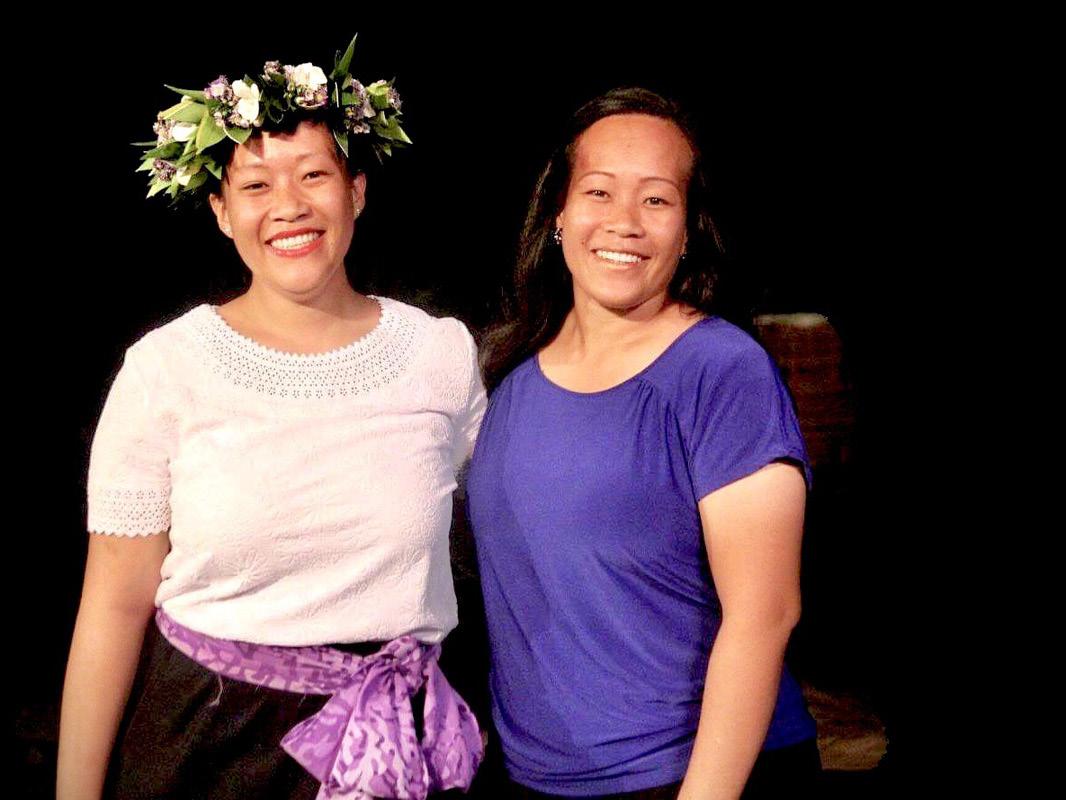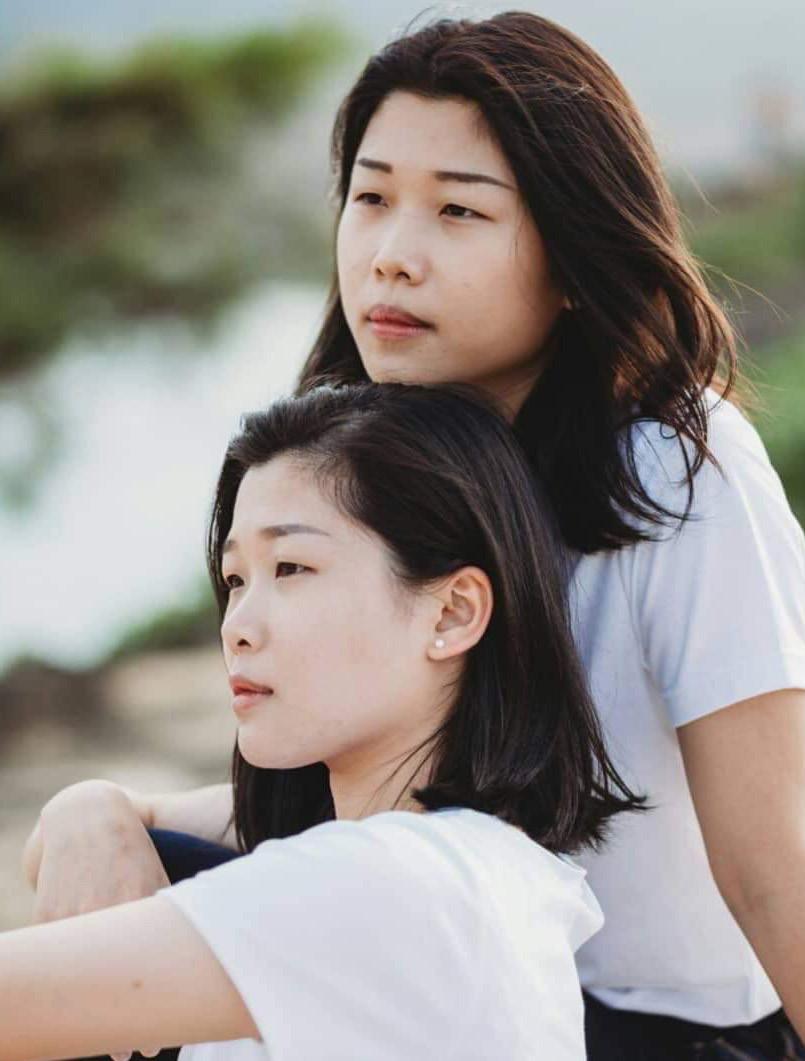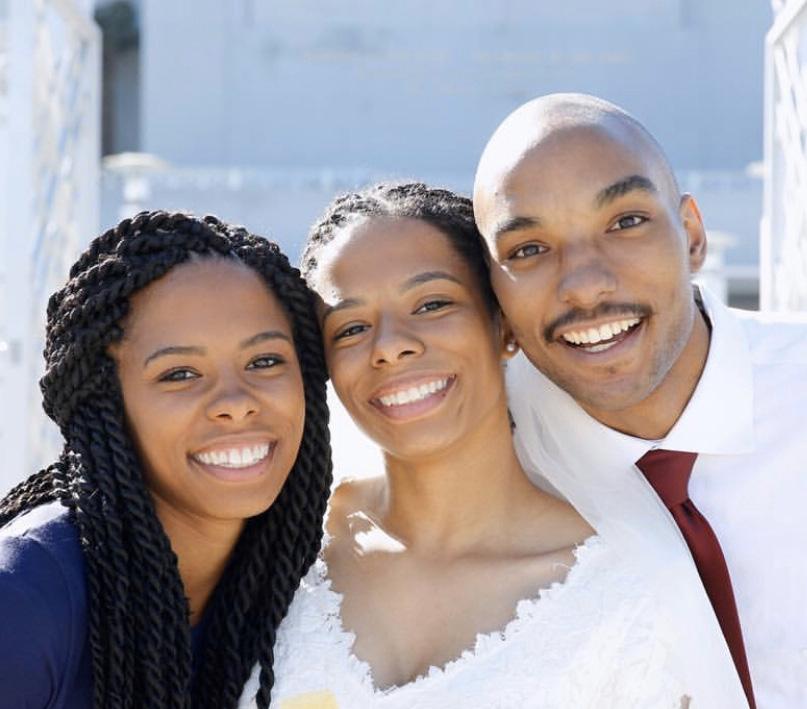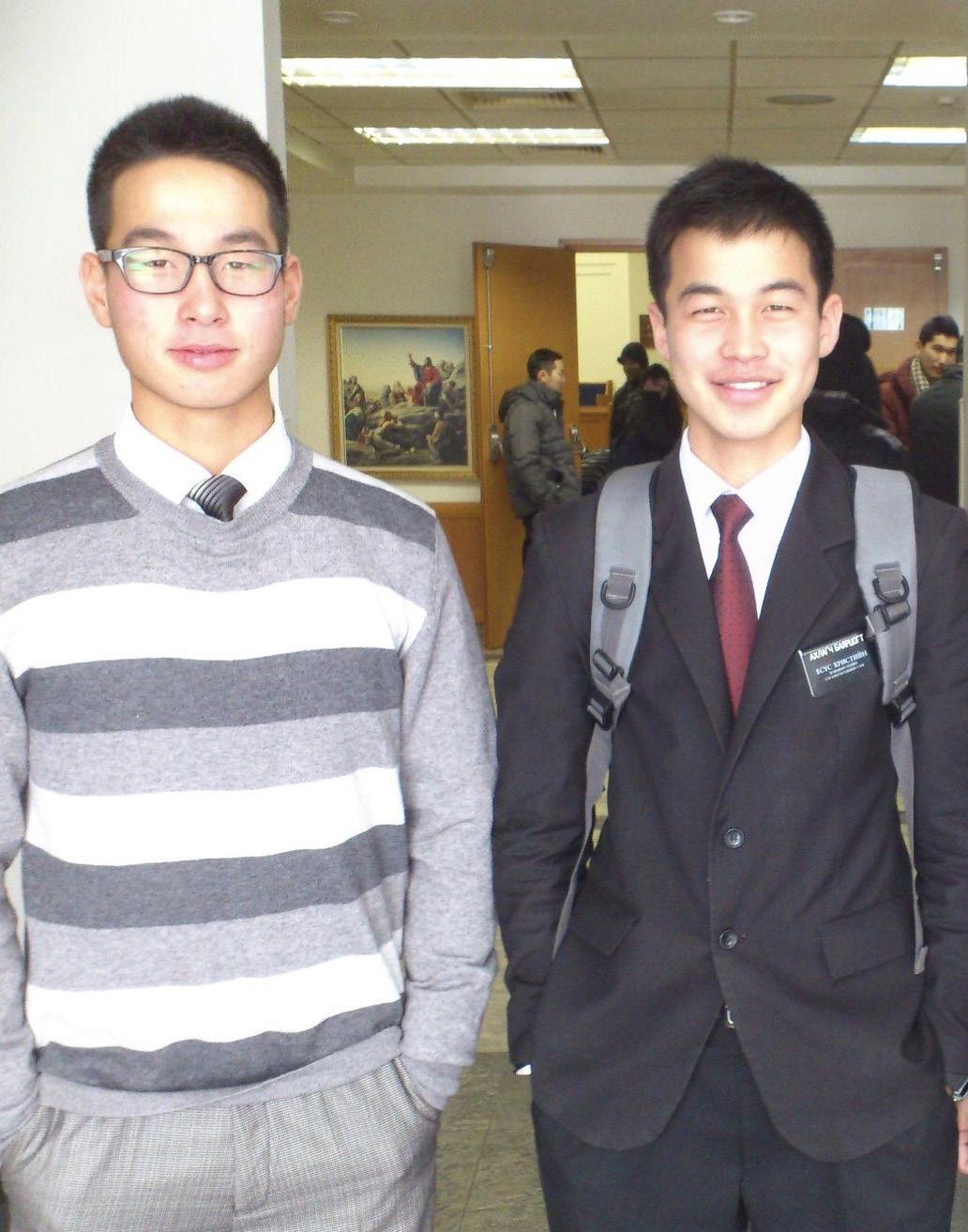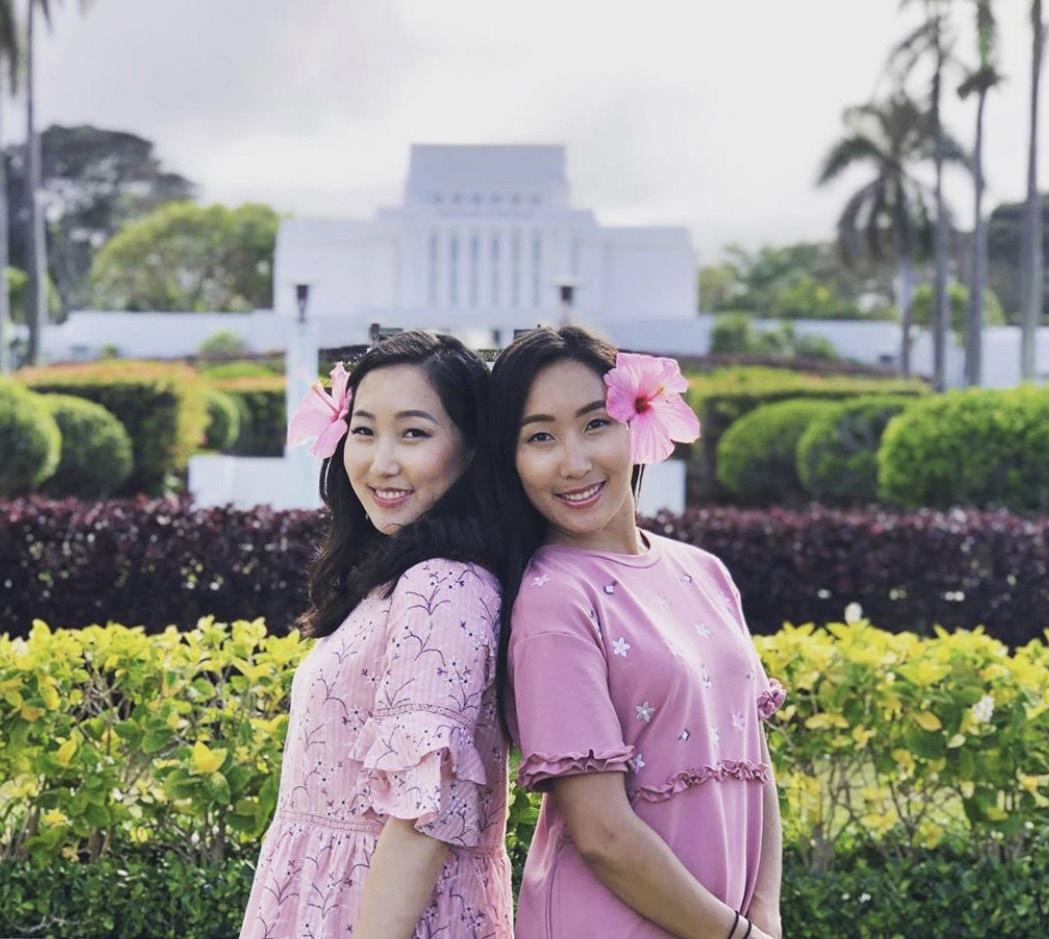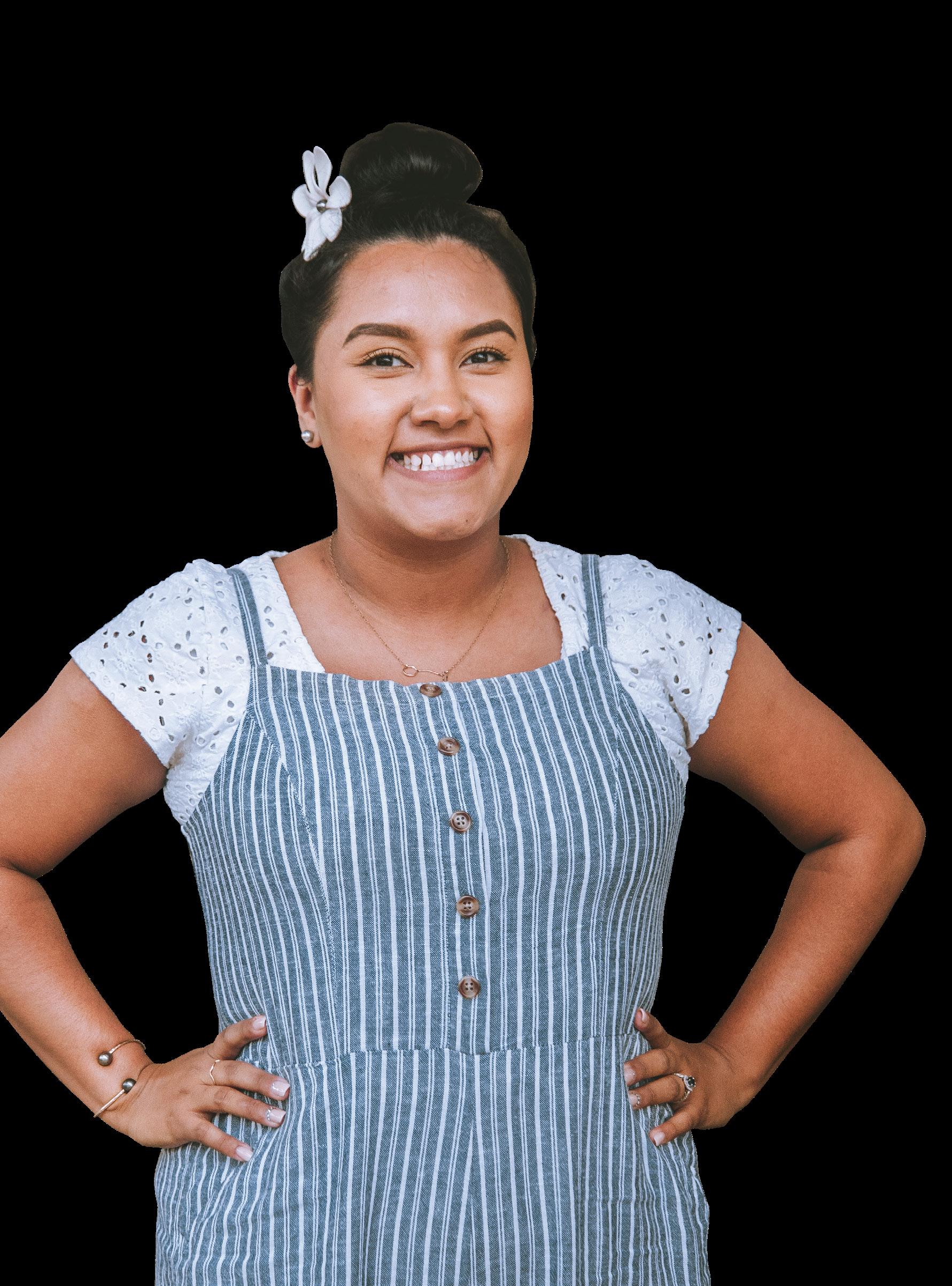
6 minute read
Seeing double
Siblings say being twins and triplets gives them companionship, but contrary to popular myths, they don’t like the same things or read each other’s thoughts
BY SERENA DUGAR IOANE
Hikaru and Akari Oshiro are twins from Japan and are both majoring in accounting. They said they were born one minute apart from each other. Photo by Chad Hsieh
Despite coming from different cultures around the world, twins and triplets at BYU–Hawaii said they experience many similar things, including being confused for the other, fighting for identity, people assuming they have magical powers and being best friends.
Different cultural perspectives
Different cultures have different beliefs about multiple births, said students and online sources. Up until the 19th Century, the Igbospeaking people of Southeast Nigeria feared the birth of twins. Whenever twins were born, their parents had to leave them at the “Evil Forest” to die, according to artifactsjournal. missouri.edu.
Similarly, Hikaru and Akari Oshiro, sophomores from Japan both majoring in accounting, said in the past, Japanese people used to believe having twin children was considered bad, so they used to kill or put one up for adoption and keep only one. However, over time that belief vanished, the Oshiros shared. They are identical twins, separated by one minute.
Bayartsogt Lkhagvajav, a sophomore from Mongolia majoring in human resources, shared in Mongolian culture they believe twin’s souls are connected, so they separate it by a Buddhist ritual. “We hold a v-shaped tree branch and break it together to disconnect our souls,” he said. He has a fraternal twin brother, Bayarbat Lkhagvajav, who lives in Mongolia. They do not look the same and his twin is taller than him, he added.
Amanda Chipman, a junior from Idaho majoring in psychology, and Mattea Chipman, a junior from Idaho majoring in English, are fraternal twins who were born three minutes apart. Their mother is Samoan, and their father is American. Amanda Chipman said both American and Samoan cultures believe having twin children or being a twin is fortunate and exciting.
Common misconceptions
Toni Shipp, a triplet and a junior from California majoring in communications, shared, “People think we have some magical powers like reading each other’s minds and feeling each other’s pain, but this is just a misconception.” Hikaru Oshiro said, “Sometimes people ask stupid questions like, ‘If I hit you, does your twin feel the same pain in the same place?’”
Amanda Chipman shared, “People assume twins like the same things, but it is not true. My twin and I have very different personalities and interests.”

One of a set triplets, BYU–Hawaii junior Toni Shipp says some people think triplets or twins have the magical ability to read each other’s minds or feel each other’s pains, but she says this is not true. Graphic by Brad Carbine
However, Pei Chia Wu, a junior from Taiwan majoring in exercise and sports science, and Yu Chia Wu, a sophomore from Taiwan majoring in graphic design, said sometimes they finish each other’s sentences. They believe it is not because they are twins, but it is because they have spent so much time together ever since they were born. They are identical twins separated in birth by 11 minutes.
Vika and Sela Funaki, juniors from Tonga both majoring in biochemistry-neuroscience, said they have an intuition for each other. Vika Funaki said, “Sometimes I think about her more often than usual, and after that, I usually find out something bad happened to her.”
Fight for identity
Shipp said she is identical with her sister and fraternal with her brother. “In middle school, we reached a point where we wanted to find our own identity. For so long, we were grouped together as one and called ‘Shipplets.’ We tried so hard to be different from the other two. Especially my sister, who was so sick of being mistaken for me all the time.”

Narantsatsral Ganzorigt, a sophomore from Mongolia majoring in exercise and sports science, said when she and her twin were in high school they tried to be different from each other by having different hairstyles, wearing different clothing, or going different ways. “Our mother is a tailor, and she always sewed similar clothes for us. We also went to the same school all the time. Eventually, we [became] tired of being stared at by strangers in the streets and hearing their whispering of how similar we were. Even though we are identical twins with the same height and weight, we tried our best to look different.”
Confused identities
Being confused for each other is another common thing for twins, shared those interviewed. Pei Chia Wu said she works at Pounders Restaurant, and Yu Chia Wu works at the BYUH Cafeteria, but people asked her if she has two jobs.
Narantsatsral Ganzorigt said it is common for strangers to greet her. “I know they may confuse me with my sister, so I just greet everyone.” She was born 10 minutes apart from her identical twin Narantuya Ganzorigt, who lives in Provo, Utah.
Amanda Chipman said even though she is a fraternal twin scientifically, she looks like her sister. People mistake them a lot, so she answers to both of their names, she added. Sela Funaki said recently she broke her knee, and her twin is taking care of her. “We are roommates and best besties. We don’t hide anything from each other. We understand each other very well and gossip together.” •
Best friends
Twins interviewed said the blessing of being a twin is having a best friend all the time. Bayartsogt Lkhagvajav said having his brother is like having the Holy Spirit all the time. “We wish the best for each other and correct each other’s mistakes and bad behavior.”
Pei Chia Wu and Yu Chia Wu said they were adopted when they were 3 months old. They said their adopted mother was planning to adopt one child, but their birth mother begged her to adopt both of them.
“Our biological mother [asked our] adopted mother since we were separated from her. She wanted at least us to be together,” said Pei Chia Wu. They both like to play table tennis and are good partners, they shared.
Amanda Chipman said when they were in junior high school, all of their friends changed and were getting into trouble. “It was hard to lose our friends, but we got through it because we had each other.”
Also, having a twin prepared her to be a missionary, she said. “Having a companion 24/7 was not a hard transition for me.”
Bella Reed, a sophomore from Oahu majoring in secondary education and history, and her identical twin sister, Alex Reed, a sophomore studying elementary education, said they love being twins. They have been best friends with another set of twins since they were 4 years old.
Toni Shipp shared, “Growing up, I never got bored. I have two same-aged people always around me, and one has the same face as me. They are usually my classmates and partners in crime.” Twins Pei Chia Wu and Yu Chia Wu say they like to play table tennis together and they are good partners. Graphic by Brad Carbine
Photos on next page starting at top going left to right:
The Shipps - Photo provided by Toni Shipp
The Wus - Photo by Vivian Choi
The Funakis - Photo provided by Funakis
The Lkhagvajavs - Photo provided by Bayartsogt Lkhagvajav
The Oshiros - Photo by Chad Hsieh
The Chipmans - Photo by Gordon Chipman
The Ganzorigts - Photo by Batbaatar Norjmaa
Twins and triplets at BYUH
